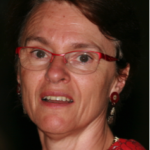Lien vers Pubmed [PMID] – 17056751
J. Bacteriol. 2007 Jan;189(1):187-97
Bacillus subtilis can use methionine as the sole sulfur source, indicating an efficient conversion of methionine to cysteine. To characterize this pathway, the enzymatic activities of CysK, YrhA and YrhB purified in Escherichia coli were tested. Both CysK and YrhA have an O-acetylserine-thiol-lyase activity, but YrhA was 75-fold less active than CysK. An atypical cystathionine beta-synthase activity using O-acetylserine and homocysteine as substrates was observed for YrhA but not for CysK. The YrhB protein had both cystathionine lyase and homocysteine gamma-lyase activities in vitro. Due to their activity, we propose that YrhA and YrhB should be renamed MccA and MccB for methionine-to-cysteine conversion. Mutants inactivated for cysK or yrhB grew similarly to the wild-type strain in the presence of methionine. In contrast, the growth of an DeltayrhA mutant or a luxS mutant, inactivated for the S-ribosyl-homocysteinase step of the S-adenosylmethionine recycling pathway, was strongly reduced with methionine, whereas a DeltayrhA DeltacysK or cysE mutant did not grow at all under the same conditions. The yrhB and yrhA genes form an operon together with yrrT, mtnN, and yrhC. The expression of the yrrT operon was repressed in the presence of sulfate or cysteine. Both purified CysK and CymR, the global repressor of cysteine metabolism, were required to observe the formation of a protein-DNA complex with the yrrT promoter region in gel-shift experiments. The addition of O-acetyl-serine prevented the formation of this protein-DNA complex.



